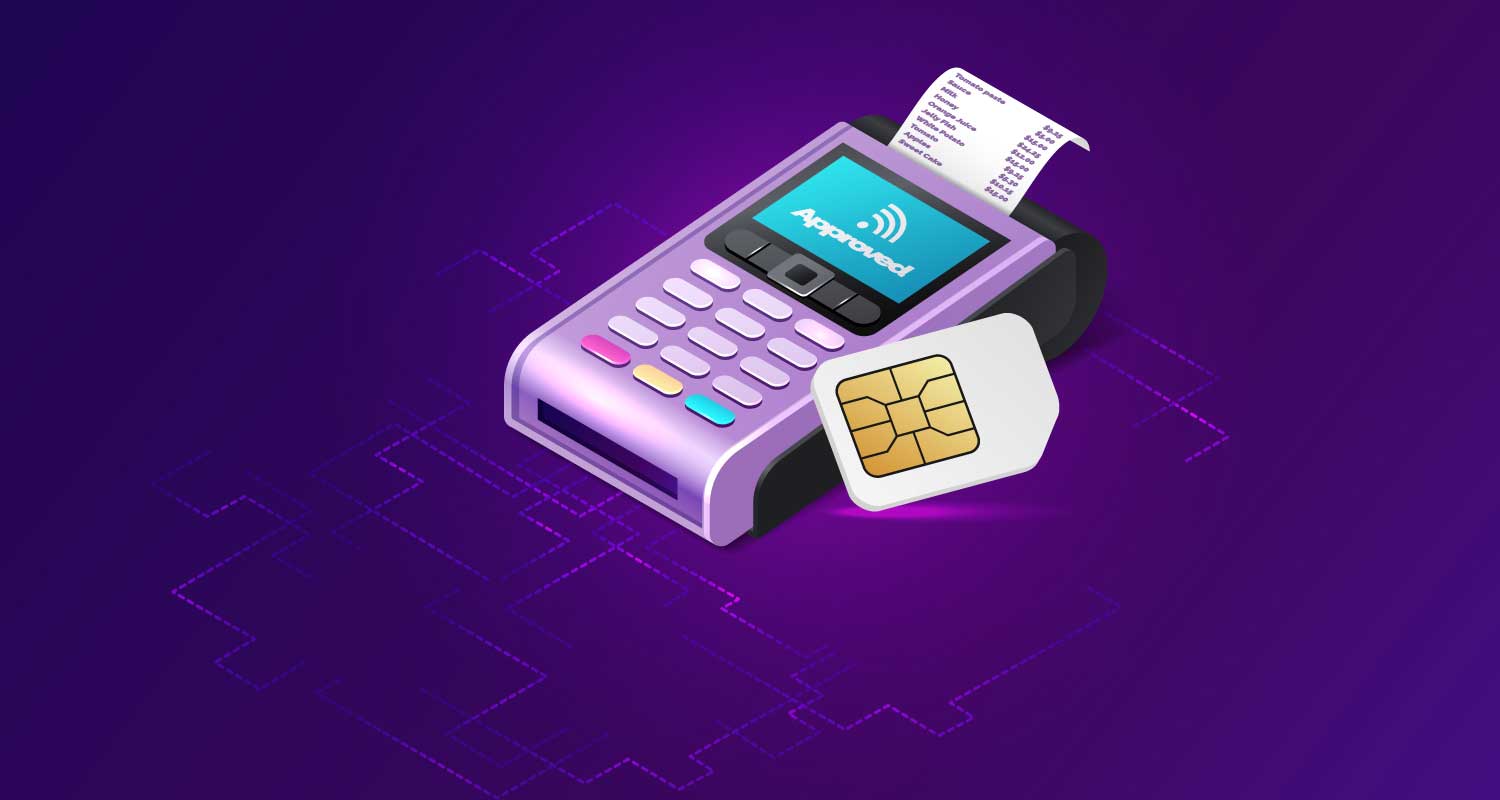Payment terminal connectivity: the importance of IoT in fintech

 The fintech industry has experienced remarkable progress in recent years, changing the delivery of financial services. Many retail-focused fintech innovations rely on secure and reliable IoT connectivity.
The fintech industry has experienced remarkable progress in recent years, changing the delivery of financial services. Many retail-focused fintech innovations rely on secure and reliable IoT connectivity.
In this article, we delve into the role of connected devices, the importance of mobile device connectivity, and the options around managed private APNs.
Mobile devices in fintech
Many fintech solutions rely on connected devices distributed to different locations. These can be mobile payment terminals, points of sale, coupon machines, handheld PDAs, biometric authentication, kiosks or smartphone-based distributions. Whether fixed or mobile, most device deployments rely on mobile network data connectivity (2G/3G/LTE/NB-IoT) for reliable transaction.
Managers who need to manage these large deployments of data Sim fleets need the flexibility, tools and security to effectively manage Sims from multiple cellular networks, or Sims capable of roaming and connecting to multiple local cellular networks. They also need deep real-time insight into the performance of their entire connected Sim fleet to proactively catch connectivity issues and troubleshoot individual issues. They want the assurance that there will be no ongoing data consumption, fees outside of the package or bill shock outside of normal operating costs. They also require detailed reporting across SIMs from different mobile networks to better plan and manage device deployments. Calculations, data and notifications must also be available via API.
Managed private APN: enables reliable and secure IoT connectivity
Depending on the type of device and how security and encryption are handled, fintech devices require either private APN or public APN mobile connectivity. APN (access point name) is the network layer used in mobile data networks that determines the routing of mobile data to reach its intended destinations.
Many fintech devices, especially those that encrypt data on the device itself, can operate reliably and securely on the public APN. Where device-to-server data connectivity must be routed in a dedicated and custom route, or where traffic from the device must be sent through a custom firewall or VPN to only allow data to specific destinations or URLs, a managed private APN is required to ensure customized and secure IoT connectivity.
Aggregation of APN data across multiple mobile networks is another benefit of managed private APNs, which eliminates the need to commit to APN data with each mobile network independently and enables easier risk mitigation by being able to use Sims from more than one mobile network .
Advanced networking and secure connections: powering fintech innovation
Especially for devices running on Android-based platforms or on smart devices, mobile traffic needs to be effectively managed at the network level. Only specific app data should be allowed to pass through, and all other app and data traffic should be effectively blocked before it goes to destination servers or breaks out to the internet.
Managed APNs offer advanced network features, traffic segmentation and load balancing. These features ensure that critical fintech services receive the necessary network resources for smooth operation.
Furthermore, end-to-end secure connectivity is of utmost importance for some fintech entities, where unencrypted sensitive financial data is transferred. Managed APNs enable private network and VPN technologies to establish secure tunnels between devices and backend systems, reducing the risk of data breaches and unauthorized access. This robust security framework instills trust among users and financial institutions, encouraging greater adoption of fintech solutions.
Conclusion
The potential of IoT to revolutionize the fintech industry is huge, reshaping the delivery, experience and security of financial services. By leveraging multi-network connectivity to mobile devices, managed private APNs and advanced network capabilities, financial institutions can achieve efficiency, customer-centric services and data-driven insights.
The integration of Sim management services such as SIMcontrol and Managed APN solutions solves the challenges of acquiring and managing Sim cards, optimizing data usage and ensuring secure and robust connectivity.
As the fintech landscape continues to evolve, embracing the transformative power of IoT devices will be critical for organizations to stay ahead, deliver innovative solutions, and improve customer experience in the digital era.
For more information or to speak to a fintech device connectivity specialist, visit SIMcontrol.























